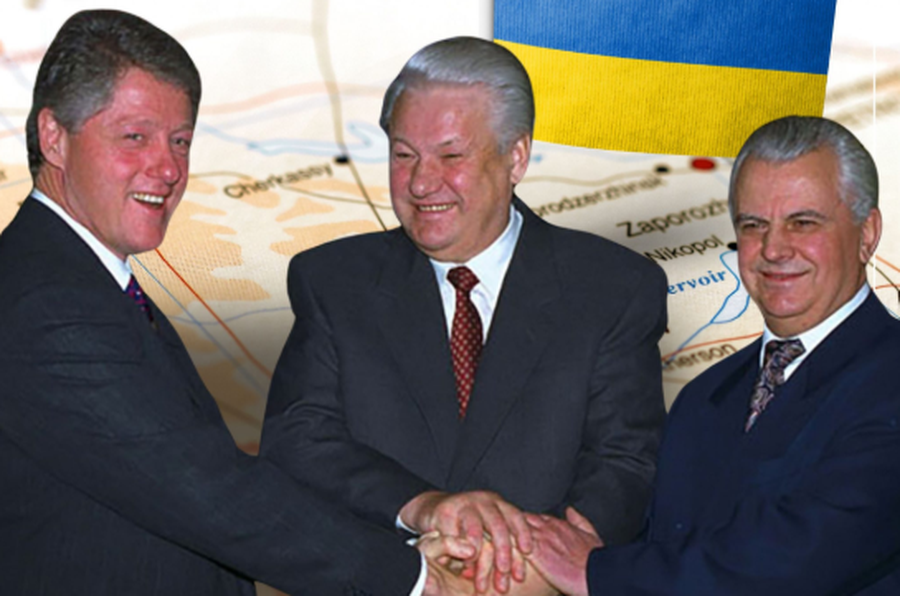
Moscow, January 14, 1994. American President Bill Clinton, Russian President Boris Yeltsin and Ukrainian President Leonid Kravchuk sign the agreement on the nuclear disarmament of Ukraine. It is the beginning of a turning point in the difficult Moscow-Kiev relations, which will lead to another signature, that of the Memorandum on Security Guarantees, on December 5, 1994 in Budapest. With that memorandum, America and Russia commit to respecting the Ukrainian borders.
It is a triumph for Clinton, who is preoccupied with the wars in the Balkans on the one hand and the next Israeli-Palestinian crisis on the other, both of which threaten the new European order he wants to build. The American president has been mediating between Moscow and Kiev for two years, but he knows full well that he has only won the first battle of a very difficult campaign.
Two White House documents from December 1993, released by the Clinton Library, entitled “American Policy Towards Central and Eastern Europe,” demonstrate this. More than 30 years later, reading them sheds some light. Despite the understanding between Clinton and Yeltsin, the White House feared that Russia was seeking some kind of protectorate over Ukraine and other Soviet republics.
The documents do not allude to the possibility of a Russian military intervention in Kiev in the event of a crisis, but in an explicit reference to Moscow, they affirm the need to “establish the principle that no state has the right to protect its ethnic minority in a neighboring state.” This is precisely the reason Putin used when he invaded Crimea 10 years ago.
Human rights
According to the documents, the Organization for Security and Cooperation in Europe, OSCE, headquartered in Warsaw, is responsible for protecting human rights and democracy in what they call NIS (newly independent states), including Ukraine. “The OSCE should have priority in this regard, and the High Commissioner on Minorities should be supported. Unilateral interventions are prohibited… The OSCE should also participate in conflict prevention, and its long-term missions should also include military personnel. It should be equipped with intelligence, logistics and communications to strengthen the rapid reaction group discussed in Rome.”
Multilateral operations, the two documents state, could be more effective. The White House, however, is aware that the OSCE could fail, and to facilitate its success, it proposes to President Clinton that he “create a sense of stability and security in Central and Eastern Europe and establish a bridge between it and Russia, as well as the countries that have recently gained independence, preventing the erection of new barriers”. How? “By integrating everyone. First Russia and Ukraine, in a Euro-Atlantic security system where relations between states are peaceful and constructive, like those of NATO member states”.
Satellite states
NATO, the documents add, “in this context, it can carry out peacekeeping and crisis management operations, now not only with a UN mandate, but also with the OSCE”. To this end, “it is urgent that we promote agreements between different governments”. In retrospect, these proposals seemed ambitious to Clinton. But they responded to what the American president had christened “second-generation democracy”, the era of political, economic and social reforms in former communist countries, including Ukraine. The White House wanted all these countries “to see that America is with them for the long term”, and would help them, just as the European Union would help them.
The documents promise “the creation of a democracy institute, both governmental and private, headquartered in Washington, and the creation of a democracy commission in American embassies, in support of interethnic and interregional programs.” The rapid mobilization of NGOs is suggested.
The project is ambitious and supported by Western Europe, but, as Clinton is informed through the documents, not by Central and Eastern Europe, the former satellite states of the USSR. Some of them continue to see Russia as an enemy and in their entry into NATO, a guarantee that they will never again be subject to it. For this reason, the White House calls for “increased coordination between the EU and other regional organizations, such as the Black Sea Economic Community, which is led by Russia and Ukraine.”
The document underlines that "from our side there should be no difference in rights between the countries of Central and Eastern Europe and the states that have just gained independence. In addition, just as Russia cannot have the right to veto decisions of its former satellite states, so too cannot former satellite states be opposed to Russia."
No to the Marshall Plan
What the documents explicitly exclude is a new Marshall Plan that would include Central and Eastern Europe and the newly independent states, and that would lay the foundations for a pan-European economic recovery and lasting peace. The US no longer has the means. It can only encourage private investment, provide loans, promote the construction of trans-regional infrastructure, and so on. “Although the reform process has made solid progress in 1989,” it concludes, “success is not yet certain.” The White House is aware that if reforms are partial or too slow, conflicts could erupt. But it does not stop at potential hotbeds of tension. In the immediate post-Cold War period, it focuses on Eastern Europe and Russia.
In light of this record, the Clinton administration may appear overly optimistic, if not unrealistic. But in the nineties, years of war but also hope, great changes occurred. Among the reasons why they did not continue, terrorism and the financial crisis of 2008 are undoubtedly mentioned. But also the change of leaders in Washington and Moscow are mentioned.
After a short honeymoon, relations between Bush Jr. and Putin deteriorated and Obama failed to mend them. Crisis prevention no longer appeared on America's agenda, much less on that of the EU. Putin was thus able to restore Russia's dream of superpower status. / Bota.al (A2 Televizion)











